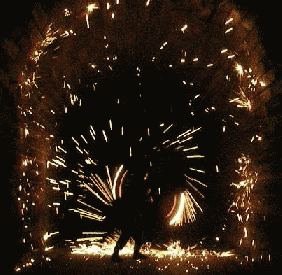The King Needs Your Help! (Posted in Honour of Otto Bretscher)

The King of Randomia has a problem. He is the proud father of three sons: Bingo, Toto and Lotto. Only one of the sons can succeed him as king but they are all suitable to rule the kingdom. At his wit's end he decides to use the following method to decide who his successor will be:
At a succession ceremony, the king will toss a coin repeatedly until two consecutive heads or two consecutive tails come up.
Bingo will become king if it is two successive heads and this occurs in an even number of tosses.
Toto will become king if it is two tails and this occurs in an even number of tosses.
Lotto will become king if it is either two heads or two tails and this occurs in an odd number of tosses.
The subjects are in an uproar because they think this method of selection is not fair.
Investigate the situation and decide whether or not the sons have an equal chance of becoming the next king. Will this spark a debate (reason for image)?
This problem was posed by Bertus Van Etten of the Institute for Mathematics and Science Teaching of the University of Stellenbosch.
Easy Math Editor
This discussion board is a place to discuss our Daily Challenges and the math and science related to those challenges. Explanations are more than just a solution — they should explain the steps and thinking strategies that you used to obtain the solution. Comments should further the discussion of math and science.
When posting on Brilliant:
*italics*or_italics_**bold**or__bold__paragraph 1
paragraph 2
[example link](https://brilliant.org)> This is a quote# I indented these lines # 4 spaces, and now they show # up as a code block. print "hello world"\(...\)or\[...\]to ensure proper formatting.2 \times 32^{34}a_{i-1}\frac{2}{3}\sqrt{2}\sum_{i=1}^3\sin \theta\boxed{123}Comments
@Brian Charlesworth I would love to hear what you think!
Log in to reply
Interesting question. At first glance I'm getting equal probabilities for all three, but given that this is supposed to spark a debate makes me think I'm missing something. Looking at the possible sequences, Bingo and Toto have identical situations from a probability standpoint, each with one scenario of winning after any 2n throws, n≥1. Thus the probability for each of them is
n=1∑∞(21)2n=1−4141=31.
So the probability that Lotto will succeed is 1−2∗31=31 as well. Just as a check, we note that Lotto has two ways of winning after any odd number of throws ≥3, which will have a probability of
2∗n=1∑∞(21)2n+1=n=1∑∞(21)2n=31,
thus confirming the previous observation.
Log in to reply
Too many o's can be a cause for mistakes- I think you got lotto and toto mixed up.
Log in to reply
Haha, Yeah, it can. :P Thanks for catching that mix-up; in my mind I had them in alphabetical order, but looking back now that wasn't the case.
On this spreadsheet, we can see that, earlier on, the chances of each brother being chosen are nearly the same and we can also see that the probability of alternate heads and tails and no result being decided gets closer and closer to zero and the probabilities for each brother being chosen get closer to one third.
To find the total probability for Bingo being chosen we need to sum the following infinite geometric series (and the same series applies to the probability of Toto being chosen).
Probability of Bingo=41+412+413+414+...=1−4141=31.
As the probability of the process going on for ever with no decision is limn→∞41n=0 it follows that each brother has a probability of one third of being chosen.
Therefore, you are correct! (P.S.Try this as well. It seems nobody can solve it).
What's their family motto? :D
Log in to reply
God does not play dice.
He flips coins!
Log in to reply
He plays a mean game of poker, too. :)